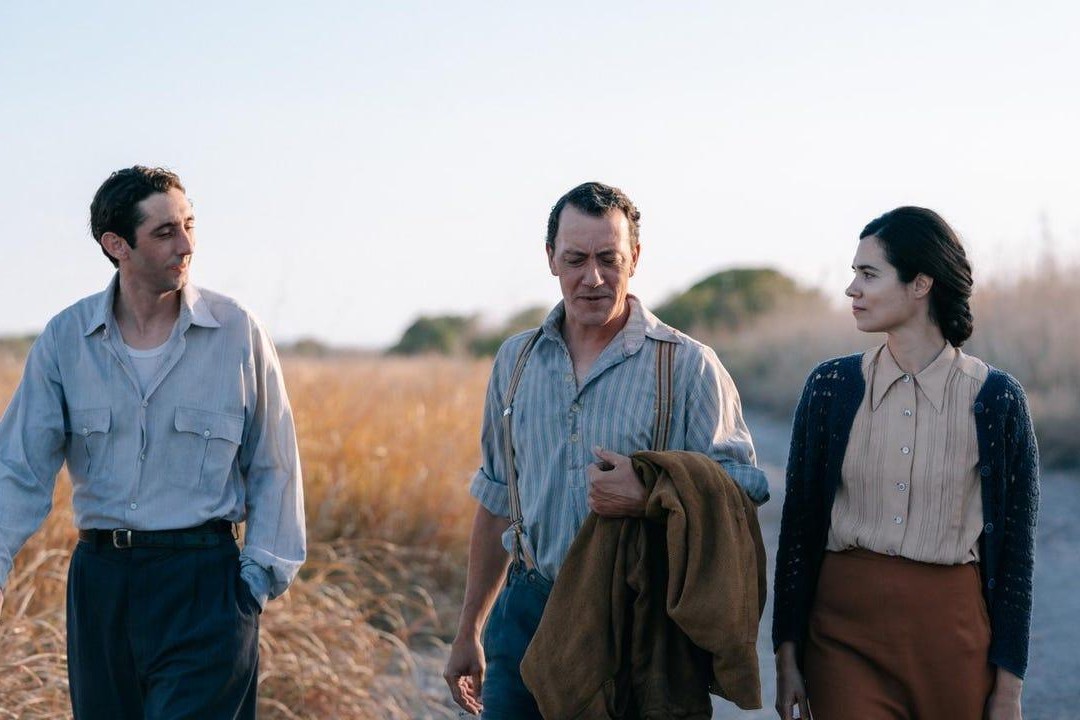Absolutely not to be confused with the Brazilian lesbian werewolf film of the same name, The Good Manners is instead an austere family drama set in the aftermath of the Spanish Civil War. Director Celia Rico‘s adaptation of Rafael Chirbes‘ novella La buena letra is rigorously controlled and emotionally restrained to a fault. It’s an easy film to admire, less so to enjoy.
Ana (Loreto Mauleón) lives with her husband Tomás (Roger Casamajor) and mother-in-law. Tomás’ brother Antonio (Enric Auquer) is presumed dead in the Civil War. In order to spare the grief of the old woman Ana forges letters from Antonio, imagining a good life in Buenos Aires. One day, Antonio miraculously returns, bringing upheaval to Ana’s life, and cutting a rather different figure than the one she had invented in her letters.
The Good Manners retains the literary form of its source, divided into three chapters, each focussed on Ana’s relationship with one of the three other central characters, Antonio, Antonio’s wife, the vivacious Isabel (Ana Rujas), and lastly her husband Tomás. In each, Ana (played with immaculate stoicism by the talented Mauleón) internalises all her desires and allows herself to be subsumed by duty and self-sacrifice. A mutually flirtatious spark with Antonio is stamped out, her curiosity about (and possible attraction to) Isabel is tempered, partially due to her proximity to Franco’s Falangists, and her relationship with her husband, stolid, rough-hewn Max von Sydow-type Tomás is characterised by domestic drudgery.
While the roiling backdrop of Franco’s regime reaches into every home, it seems merely to compound existing sorrows; sorrows pushed down until they carbonise and calcify. The drama in The Good Manners occurs in glances and furrowed brows, lurking between the lines. It’s one of those instances where a little bit of melodrama wouldn’t have gone amiss. This is a film where Ana trying on a pair of her sister-in-law’s scandalous trousers is seen as a moment of rare daring.
Subtlety is a virtue that is sorely lacking in cinema today, and The Good Manners certainly has that. It’s also beautifully shot and staged with a painterly eye and an appreciation for natural light that has shades of Barry Lyndon about it. Yet it’s so corseted by its own style and a seeming aversion to anything that might consitute drama that it ultimately feels a little lifeless. Once the stately rhythms are established, the actual beats of the story are shunted to the margins and it becomes difficult to engage with its characters, as impeccably acted as they are. Perhaps there is historical context that is taken as read by a Spanish audience that will be missed by Scottish audiences, some allegorical resonance that comes with its own thematic heft. It’s a frustrating viewing experience given its stylistic excellence.
Screened as part of the Edinburgh Spanish Film Festival


Comments